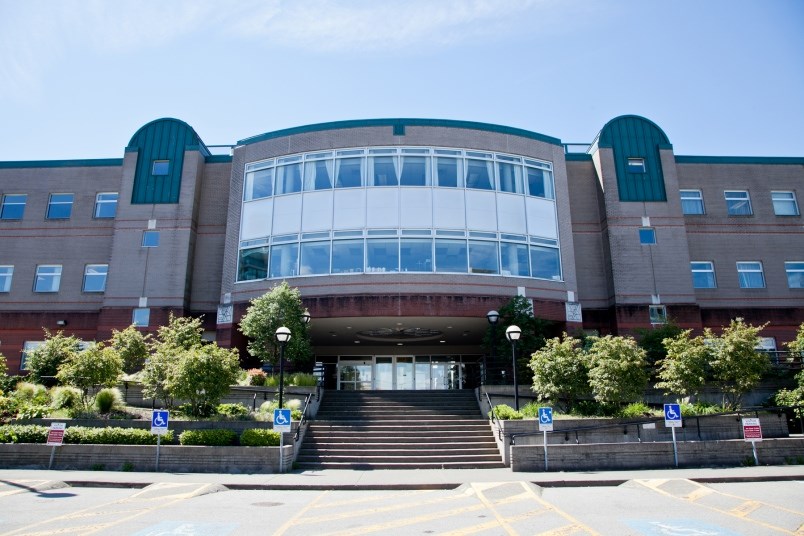Student societies at B.C. colleges and universities have been plagued with fiscal and electoral scandals for decades, and they urgently need a complete legislative reform.
Students have made this case for years, including to David Eby.
“I’m very concerned about the information you presented about what’s happening at Langara, as an advocate for open government and transparency at all levels,” Eby said in 2015, then an opposition MLA speaking to Langara College students, who had pleaded for B.C.’s freedom of information laws to extend to student societies.
Nine years later, nothing has changed.
In February, Premier Eby appointed a new minister for advanced education, Lisa Beare, and she should serve as the new broom that sweeps clean. A provincial election will be held on October 19, and B.C. college students and their parents may well reward those MLAs who have chosen to protect students from harm.
Student societies are unique because anyone seeking a post-secondary education—so vital today for a good career—must, by default, join it and pay its mandatory fees, much of these subsidized by taxpayers.
The trouble begins with fee collection under the B.C. College and Institute Act. In 1999, during the reign of NDP premier Glen Clark, many B.C. student societies—including the Kwantlen Student Association (KSA)—appealed for more autonomy, contrary to pleas from the then-president of Kwantlen College (now Kwantlen Polytechnic University).
Key changes were made that year to the act.
Previously, in response to requests from student societies, post-secondary boards “may direct the institution” to collect fees from students and send these on to the society. Twenty-five years ago, the word “may” was switched to “must.”
Worse, a subsection of the act, wherein a post-secondary board could order its administration to stop collecting student fees “if the student association (a) does not comply with the Society Act […] [and] (c) does not maintain sound fiscal management in the opinion of the board,” was deleted.
This removal of controls opened the floodgates for some student societies to brazenly abuse their powers in new ways. This has included large secret loans to their friends from the student treasury, with interest rates and repayment dates (if any) also unpublicized.
In 2011, Kwantlen students voted 352 to 0 to remove 13 directors of the Reduce All Fees party after the party’s reported misuse of $2 million of student funds.
As the new Kwantlen Student Association (KSA) chair then said: "They were treating the KSA like it was their personal piggy bank and private club house."
The Langara Students’ Union (LSU), which collected $5.2 million in student fees last year, has faced countless financial scandals, some dating back to 1976.
Societies’ elections have favoured their friends and locked out reformists. Three LSU elections were voided for “irregularities.” Yet the Societies Act is deficient when it comes to elections, and if laws are violated, Victoria tells students to go to court—something they cannot afford to do.
We can and must do far better, and so I advise a five-stage reform process.
First, the premier needs to ask the B.C. Auditor General to perform a full audit of B.C. student societies that covers the past five years.
Second, we should amend our freedom of information law to cover student societies. The feeble and unenforced disclosure mechanisms in the current Societies Act are futile.
Third, the premier needs to launch a public inquiry into the powers of B.C. student societies (and their continued necessity if any), or at least a public consultation process.
Fourth, we need to create a new standalone B.C. Student Societies Act, because these entities are distinct from other societies. Moreover, a new act should make student society membership voluntary, as is the case in Australia and New Zealand.
Fifth, Victoria urgently needs to legislate a hard cap on student society staffers’ salaries, expenses and overtime. Today, incredibly, there is no limit set on how high these can rise.
The LSU’s latest financial statement shows it paid $673,753 to six unionized full-time staffers, which would average $112,292 each. (The individual numbers are secret.)
An LSU staffer receives more than the average Vancouver registered nurse, or firefighter, or second-class Vancouver police constable, or B.C. high school teacher.
Too often, students’ time at B.C. post-secondary institutions over the past half-century has been darkened and soured by the state-empowered bullies and profiteers of some (but not all) so-called “student governments.” Students’ misfortune is worsened by official uncaring, which serves to enable unaccountable student governments.
Must students await justice for another half-century? This surely needs to end—now.
Stanley Tromp is a graduate of the Langara journalism program and the author of the book Fallen Behind, on world FOI laws. His student society FOI website is .




